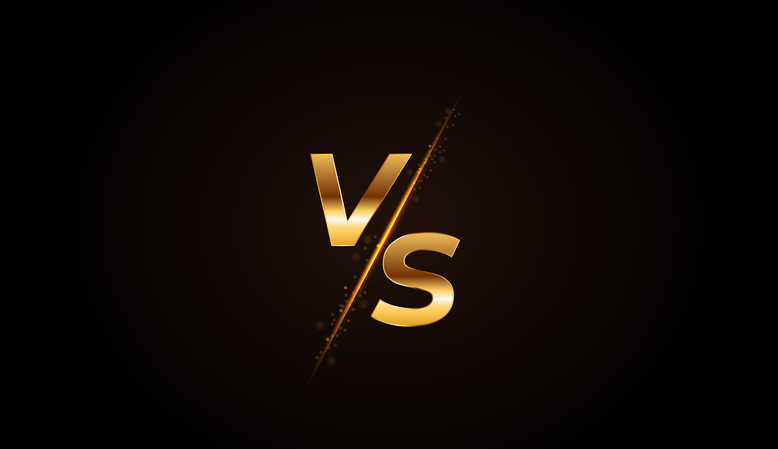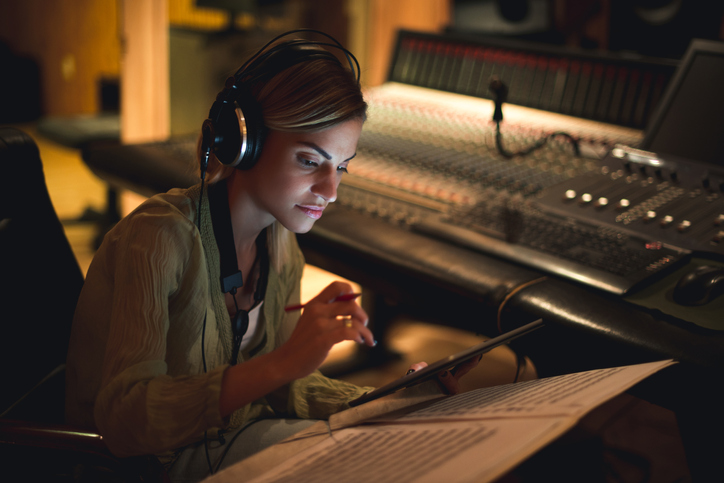Functioning as a songwriter and artist in this day and age is already hard enough. Calculating the costs of making your songs available to a streaming service is even more difficult due to low compensation for each song. Every artist deserves a fair price for their music. Unfortunately, this is not what music streaming services offer.
Most people use music streaming services like Spotify, Pandora, or YouTube Music to stream music while they exercise, work, or enjoy leisure activities. However, the plain and simple truth is this: these services do not fairly compensate artists that upload to their streaming platforms. Many artists, even well-known musicians, may not receive fair compensation for the music they create and make available via streaming platforms.
Musicians marketing their own music may fall into the pitfall of music streaming services trading listeners for cost. While you may reach more listeners, you will never make the amount of money equivalent to the price your music deserves. Streaming services have been a topic of debate since they began, but holding them accountable has been a whole different ball game.
In order to get a fair shake per listen, streaming services would need to agree to share profits from ads and promotions. As music streaming services rise in popularity, artists begin to feel more and more hopeless. Each song played only provides the artist with fractions of a cent for each song played. Stuck in the catch 22 of music streaming services, what is a rising artist to do?
There is some hope, but first, let’s explore how streaming services work.
Table of Contents
How Music Streaming Services Work

Music streaming services have been around since the early 2000s starting with Rhapsody. The idea of music streaming is based on providing listeners with a wide range of music for a flat monthly fee. Other concepts such as offering the ability to make playlists, share playlists, and ability to download and discover new music are other defining features of music streaming services.,
Streaming services like Spotify, YouTube Music, and Amazon Music all function virtually the same way. You can either listen with ads, which only the services profit from, or pay a monthly fee for no ads and sometimes exclusive music. The streaming algorithm will find out what you like and offer you new suggestions based on your previous listening history as well.
As an artist, these algorithms might help get your music to new listeners if you choose to put your songs on said platforms, which is a huge plus. However, if you’re expecting to make some cash from uploading your songs, that will probably not be the case. Even big-name artists make a small fraction of what they should because of the ongoing battle with streaming services.
Music streaming services have the advantage here because what they’re offering is something everyone wants. Their preferred music, uninterrupted, and new music that matches their taste. If you’re a musician that chooses not to use these platforms, it’s highly unlikely people will be exposed to what you offer. Buying albums isn’t nearly as common as it used to be which ends up leaving music artists stuck receiving less for all their hard work.
How Much Musicians Get Paid from Streaming Services
So exactly how much do musicians get paid from streaming services? That depends. Many streaming services are highly secretive about how much they pay per song, but it’s estimated to be between $0.0003 and $0.0084 per stream. The average payout is around $0.004 per stream which is minimally better but still not even a whole penny of payment.
In addition to that slap in the face, some streaming services don’t pay royalties to artists either. Now, some do but it’s entirely based upon previous agreements with labels or distributors. Since royalties would come from ads and subscription money, it seems these services are trying to hold on to that money as tight as possible and restrict what kind of access artists may try to receive.
For most musicians, just to earn a dollar on a streaming service their song would have to be played an average of 278 times. This means if your song was played 1 million times, you would only make just over $3,500. If you’re trying to make a name for yourself, relying on streaming services won’t be the way to keep yourself fed. It’s a completely unfair system, which is why artists everywhere are speaking out against it.
Songwriters vs. Streaming Services

The Copyright Royalty Board (CRB) stepped up for songwriters and in 2018 and decreed a 44% increase in streaming rates to last through 2022. Streaming services heavily contested this decision and followed up with an appeal. This move has been compared to these services “suing songwriters” however technically that’s not the case. The appeal is to the CRB to overturn their decision.
Many artists have come forward asking Spotify, Google, Amazon, and Pandora to drop the appeal but at this time, it appears the battle forges on. It’s important to note there is at least one major streaming service that has not joined the appeal. Apple Music has made no comment and seemingly has no intention to fight the decision of the CRB.
The question most artists have about the appeal is “why?”. While streaming services like Spotify run ad after ad until users finally crack and pay for premium, where does the money go if not to the artists? The answer is, down a chain of rights holders. Record labels, publishers, distributors, and way down at the bottom of the list, the artist. In order to turn a profit, it makes sense that these services are trying to keep from paying everyone fairly, but at the end of the day the creator of the song deserves just as much as the platform they keep alive.
What Can You Do?
As an artist in the music industry, you might be wondering what you can do about unfair streaming rates and the companies who fight to keep from paying musicians. At the beginning of the pandemic in 2020, the Union of Musicians and Allied Workers (UMAW) was founded and began to fight back. Due to the loss of major income, touring and concerts, the UMAW started the battle to take back compensation from streaming services that they felt exploited their music.
The UMAW is asking for one thing. At least one penny per stream. In order to earn a living wage as a music artist, it’s impossible at the current average of $0.004 per stream. Not to mention those who work as a band must split the income per band member. Their basic plea is for Spotify and streaming services like it not to view artists as the enemy. By fighting with the very creators that keep the service running, it alienates what should be a positive working relationship between the two.
You can join the cause at Justice at Spotify and receive updates about the current appeal. While it might not seem like much, the UMAW has successfully pressured Spotify through protests and publicity to make at least one change for the better. The streaming service has committed to helping artists raise funds after a devastating year during the Covid-19 crisis. You can learn more about the Artist Relief Effort here.

Hope for the Future of Music Streaming

While it might feel hopeless, there are definitely a few things to consider about the future of music streaming. Streaming services continue to rise as the most popular way to consume music. It accounts for 85% of the music industry revenue and is estimated to have grown 12% in the first six months of 2020. As people were secluded to their homes more than ever before, the need for uplifting, passionate, and emotional music increased dramatically.
People need music. As people stream more and more, the companies will have no choice but to recognize the artist with fair payment or lose what makes them money. Eventually, streaming services will have to make serious changes or they could easily become obsolete. While it might seem as though the battle is just beginning, the effects of big-name artists speaking up and the formations of the UMAW are already starting to show.
Keep creating and promoting yourself however you can. The more you can get your name out there, the more you’ll be able to help when the time comes for companies to make a choice. Your music is important to listeners and you deserve fair compensation for your songs. Don’t give up yet, if the pandemic has revealed anything, it’s that when people work together big things can be accomplished.
How to Make Money Outside of Streaming Services

In addition to uploading your songs to streaming services, you can also promote yourself elsewhere. Online platforms like Facebook, Instagram, and TikTok are major contributors to helping new artists promote their music. Make videos, do challenges, and let the people get to know you for who you are. It’s an extremely effective way to get the recognition you need to sell your music. You can learn more about how to promote yourself on TikTok here.
Many artists make most of their money with partnerships. Partnering with a brand has the potential to help you promote yourself and help you pay the bills. Using ads on your Twitch and Youtube channel can also help put some money in your pocket as a musician. There are plenty of ways the internet has made getting recognition and ad money easier than ever before. You no longer have to book a commercial to be able to partner with a company and that’s quite a feat.
At the end of the day, the best way you can make money is by booking gigs, touring, and selling your music privately. The old-fashion way works but it works even better in combination with some of the new tactics as well. You can still be successful while demanding fair pay from music streaming services. You as the artist are the glue that holds those companies together, so don’t sell yourself short. What you create matters, even if some companies aren’t willing to admit it yet.

